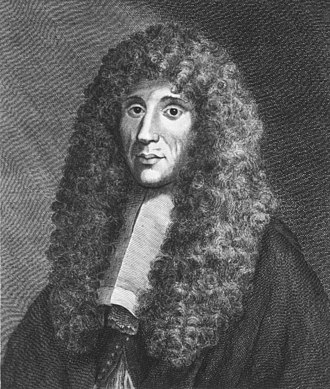Biologist



Biologist
A biologist is a scientist who has specialized knowledge in the field of biology, the scientific study of life. Biologists investigate the structure, function, growth, origin, evolution, and distribution of living organisms, ranging from microorganisms to plants and animals. This broad field encompasses many specialized disciplines, such as microbiology, zoology, botany, genetics, ecology, and molecular biology.
Fields of Specialization[edit]
Biologists often specialize in a particular area of study to better understand the complexities of the biological world. These specializations can be based on organism type (e.g., botanists study plants, zoologists study animals), scale (e.g., molecular biologists study life at the molecular level, ecologists study the interactions of organisms within their environments), or methodology (e.g., geneticists study genes and heredity, biochemists study the chemical processes in living organisms).
Education and Training[edit]
Becoming a biologist typically requires a minimum of a bachelor's degree in biology or a closely related field. This foundational education provides knowledge in key areas such as cell biology, genetics, anatomy, and ecology. Many biologists pursue further education, such as a master's degree or Ph.D., especially if they plan to specialize in a particular area or engage in research and academic positions.
Work Environment[edit]
Biologists can be found working in a variety of settings. These include laboratories, where they conduct experiments and analyze data; fieldwork, where they observe and study organisms in their natural environments; and offices, where they write reports and develop plans for research or conservation efforts. Biologists may work for universities, government agencies, non-profit organizations, or private sector companies.
Challenges and Opportunities[edit]
The work of biologists is crucial for understanding the living world and addressing challenges such as disease control, environmental conservation, and the sustainable use of resources. However, biologists often face challenges such as securing funding for research, dealing with complex ethical issues, and communicating their findings to the public and policymakers.
Notable Biologists[edit]
Throughout history, many biologists have made significant contributions to our understanding of life. These include Charles Darwin, known for his theory of evolution by natural selection; Gregor Mendel, the father of modern genetics; and Rachel Carson, whose work in marine biology and ecology led to the global environmental movement.
See Also[edit]
Ad. Transform your life with W8MD's Budget GLP-1 injections from $75


W8MD offers a medical weight loss program to lose weight in Philadelphia. Our physician-supervised medical weight loss provides:
- Weight loss injections in NYC (generic and brand names):
- Zepbound / Mounjaro, Wegovy / Ozempic, Saxenda
- Most insurances accepted or discounted self-pay rates. We will obtain insurance prior authorizations if needed.
- Generic GLP1 weight loss injections from $75 for the starting dose.
- Also offer prescription weight loss medications including Phentermine, Qsymia, Diethylpropion, Contrave etc.
NYC weight loss doctor appointmentsNYC weight loss doctor appointments
Start your NYC weight loss journey today at our NYC medical weight loss and Philadelphia medical weight loss clinics.
- Call 718-946-5500 to lose weight in NYC or for medical weight loss in Philadelphia 215-676-2334.
- Tags:NYC medical weight loss, Philadelphia lose weight Zepbound NYC, Budget GLP1 weight loss injections, Wegovy Philadelphia, Wegovy NYC, Philadelphia medical weight loss, Brookly weight loss and Wegovy NYC
|
WikiMD's Wellness Encyclopedia |
| Let Food Be Thy Medicine Medicine Thy Food - Hippocrates |
Medical Disclaimer: WikiMD is not a substitute for professional medical advice. The information on WikiMD is provided as an information resource only, may be incorrect, outdated or misleading, and is not to be used or relied on for any diagnostic or treatment purposes. Please consult your health care provider before making any healthcare decisions or for guidance about a specific medical condition. WikiMD expressly disclaims responsibility, and shall have no liability, for any damages, loss, injury, or liability whatsoever suffered as a result of your reliance on the information contained in this site. By visiting this site you agree to the foregoing terms and conditions, which may from time to time be changed or supplemented by WikiMD. If you do not agree to the foregoing terms and conditions, you should not enter or use this site. See full disclaimer.
Credits:Most images are courtesy of Wikimedia commons, and templates, categories Wikipedia, licensed under CC BY SA or similar.
Translate this page: - East Asian
中文,
日本,
한국어,
South Asian
हिन्दी,
தமிழ்,
తెలుగు,
Urdu,
ಕನ್ನಡ,
Southeast Asian
Indonesian,
Vietnamese,
Thai,
မြန်မာဘာသာ,
বাংলা
European
español,
Deutsch,
français,
Greek,
português do Brasil,
polski,
română,
русский,
Nederlands,
norsk,
svenska,
suomi,
Italian
Middle Eastern & African
عربى,
Turkish,
Persian,
Hebrew,
Afrikaans,
isiZulu,
Kiswahili,
Other
Bulgarian,
Hungarian,
Czech,
Swedish,
മലയാളം,
मराठी,
ਪੰਜਾਬੀ,
ગુજરાતી,
Portuguese,
Ukrainian
